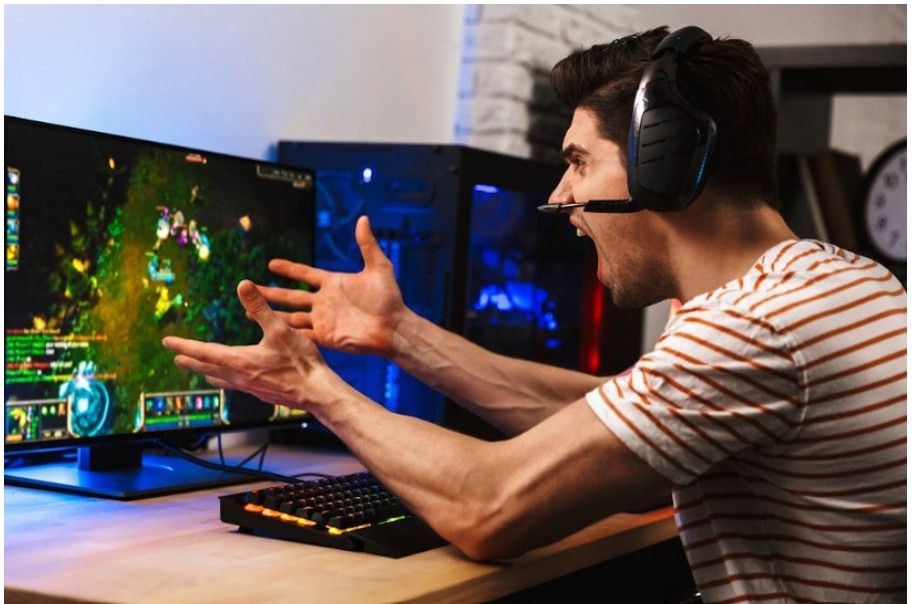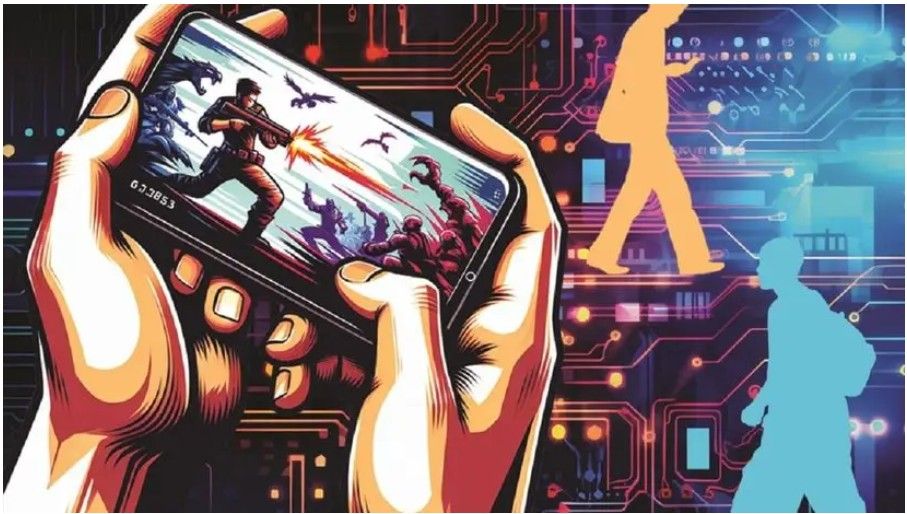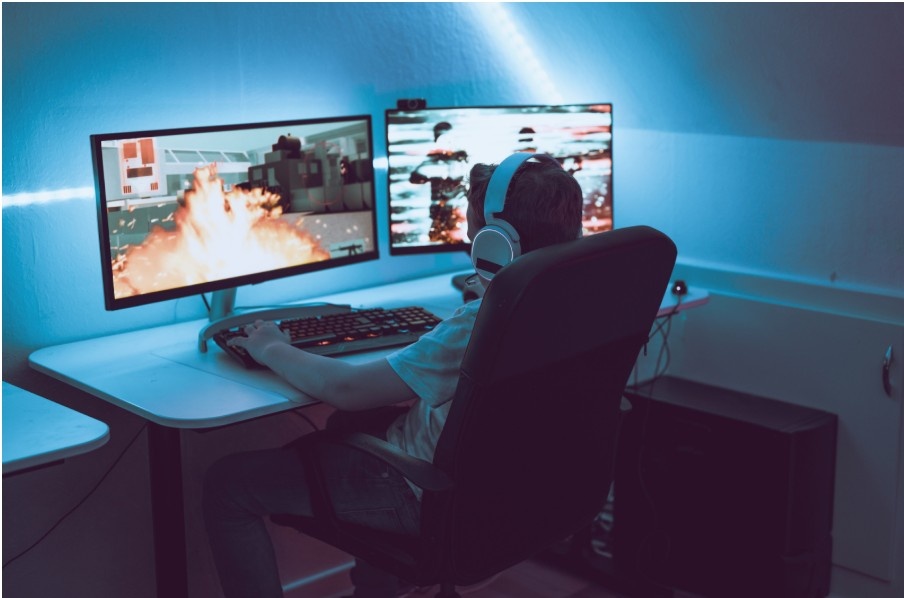Online gaming is addictive when it leads to loss of control, constant cravings, and serious harm to health, work, or relationships.
Many people enjoy online games, but some get caught chasing points, rewards, and bonuses, making it hard to stop. The thrill of winning often leads to hours of uncontrolled play.
This article will help you recognize when gaming shifts from fun to harmful, showing clear warning signs to watch for in yourself or others.
You’ll discover simple ways to stay in control, set healthy limits, and know when it’s time to seek help.
Does Online Gaming Lead To Addiction?
Online gaming can lead to addiction under certain circumstances, particularly for vulnerable individuals.
- Online games can affect the brain in similar ways to gambling or drug use.
- Approximately 0.3% to 1.0% of the general population may qualify for a diagnosis of internet gaming disorder and addiction.
- Points, prizes, and daily rewards can lead to excessive play, thereby leading to major addiction.
- Besides these, many people use gaming to escape stress or boredom, which can increase the chance of addiction over time.
What Is Online Gaming Addiction?
Online gaming addiction happens when a person feels a strong, uncontrollable need to keep playing, even when it causes serious problems in their life.

In 2018, the World Health Organization (WHO) officially recognized Gaming Disorder as a mental health condition and also included online Gaming addiction in ICD-11.
This means it’s now taken seriously, just like other types of addiction. Many games use constant rewards, points, and challenges that make it hard to stop playing.
Even when gaming causes stress, health problems, or money issues, some people keep playing to chase the same excitement.
How Do Parents Handle Online Gaming Addiction In Their Children?
Parents usually approach gaming issues calmly and encourage healthy habits. If you are a parent and searching for ways to handle online gaming addiction, the following methods might help you and your children.
- Stay calm and understanding, not harsh or punishing: Jumping to punishment or taking away devices right away can make things worse. A calm, patient approach works better.
- Communicate openly instead of arguing: Talk honestly and listen to your child’s feelings. This helps solve problems together.
- Set clear gaming schedules with limits: Decide on fixed gaming times and stick to them every day.
- Create tech-free spaces and times: Keep devices away from bedrooms and dining areas to encourage better habits.
- Promote offline hobbies and activities: Encourage sports, reading, or other fun activities away from screens.
- Seek professional help if needed: If gaming issues continue, talk to a mental health expert who understands gaming addiction.
To protect kids, always check the minimum age for online gaming in India. Setting clear age limits can help prevent addiction from starting early.
Common Online Gaming Addiction Symptoms
Recognizing early warning signs can help spot when gaming becomes a serious problem:

- Obsession with gaming
Always thinking about gaming, including the next challenge, reward, or win.
- Experiencing mood swings or irritability
Feeling anxious, restless, or upset when unable to play or when losing in the game.
- Chasing rewards, points, or bonuses excessively.
Constantly trying to win more prizes, unlock special items, or reach higher levels, often playing much longer than planned.
- Lying about time spent on gaming
Hiding gaming habits or being dishonest about the amount of time spent playing.
Risks Of Online Gaming Addiction
Gaming addiction can lead to serious problems in many parts of life, and these risks often grow worse over time if not addressed:

- Physical health problems
Hours of sitting, poor sleep, headaches, and unhealthy eating can harm the body over time.
Many addicted gamers also struggle with extreme tiredness or a lack of exercise.
- Mental health struggles
Gaming too much can increase feelings of stress, sadness, or mood swings. This can cause frustration and anxiety.
Over time, it might lead to social withdrawal, making it harder to deal with problems and keep good relationships.
- Social isolation and strained relationships.
Addicted gamers often withdraw from family and friends, leading to loneliness. They may lose interest in social events or face conflicts at home.
Research shows that between 1.7% and 10% of players develop addictive behaviors that interfere with their daily lives.
- Financial issues
Some players spend heavily on upgrades, bonuses, or prizes, leading to financial stress, especially in games that encourage repeated spending.
Spending too much money on games can cause debt and financial problems. It may also lead to fights with family and friends.
Some risks also involve legal concerns, especially since betting legality in India is complex and differs in each state.
How To Get Diagnosed For Online Gaming Addiction?
A proper diagnosis should come from a qualified mental health professional, such as a psychologist, psychiatrist, or licensed counselor experienced in behavioral addictions.
The process includes detailed questions about your gaming habits, daily life, and how gaming affects your responsibilities and relationships.
To confirm addiction, at least five symptoms must be present for a year, like losing control, feeling upset when not playing, using games to escape problems like anxiety or depression, neglecting important activities, and continuing to play despite negative consequences
Treatments To Stop Online Gaming Addiction
Effective treatment for gaming addiction typically involves professional therapy combined with lifestyle changes and family support.
Specific types of psychotherapy that may benefit someone with online game addiction include:
- Cognitive-Behavioral Therapy (CBT)
CBT helps people understand how their thoughts and feelings impact their actions. It also teaches ways to control strong wants and build better habits.

It teaches them to replace negative or obsessive thoughts with healthier habits, making it easier to manage gaming urges and regain control of their daily lives.
- Group Therapy
In group therapy, individuals with similar struggles come together to share their experiences and offer support under the guidance of a therapist.

It helps reduce feelings of isolation, boosts motivation, and provides social connections, especially for those who have lost friendships due to gaming.
- Family or Marriage Counseling
This therapy helps families understand gaming addiction and its effects. It improves communication, reduces conflict, and creates a supportive home environment.
Counseling also teaches family members how to support their loved one in a healthy and balanced way during recovery.
Precautions To Stop Online Gaming Addiction
Taking proactive steps can prevent gaming addiction from developing or help manage existing problematic gaming behaviors.
- Schedule gaming sessions in advance and stick to strict time limits.
- Avoid gaming during late-night hours to prevent sleep disruption.
- Take regular breaks from screens to protect mental and physical health.
- Encourage offline social activities to maintain a balanced life.
- Monitor spending on in-game purchases and casino-style games.
- Use parental controls and time-limiting apps for accountability.
Conclusion: Online Gaming Is Addictive, But Can Be Prevented With Care
Gaming addiction is a serious behavioral condition that affects millions of people worldwide, impacting both traditional video games and online casino-style gaming.
While most players enjoy games responsibly, spotting addiction signs early helps people take action sooner, leading to better support, healthier habits, and a greater chance to regain control over their lives.
Simple prevention strategies like setting time limits, maintaining offline relationships, and monitoring spending help keep gaming enjoyable rather than destructive.
FAQs
Casual gaming rarely causes addiction. It becomes risky when used to escape stress or replace important daily activities.
Most people notice progress within 3 to 6 months of treatment. Full recovery may take anywhere from 90 days to a year.
Teenagers and young adults aged 12 to 25 are most affected. This is due to ongoing brain development related to impulse control.
Some individuals return to moderate gaming after treatment. Others may need to avoid gaming altogether, depending on personal needs.
- How to Withdraw Winnings from Betting Sites Using UPI - August 20, 2025
- Is Online Gaming Addictive? (Risks & Precautions) - August 19, 2025
- Google Pay for Betting in India – How To Use It? - August 18, 2025